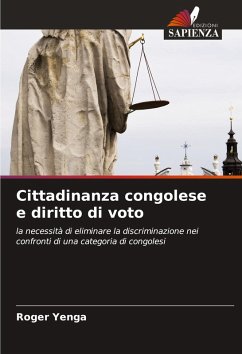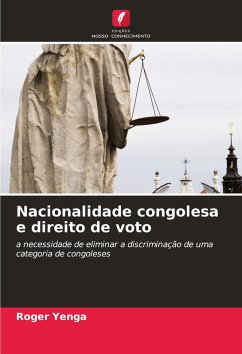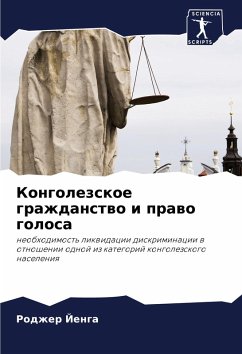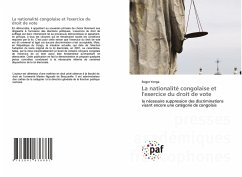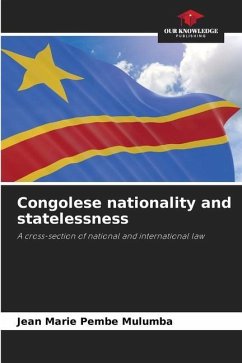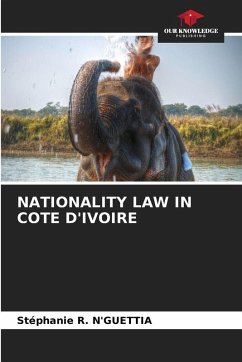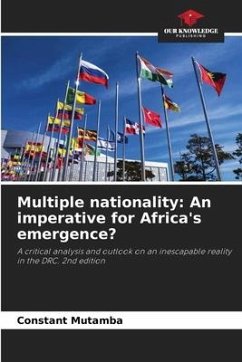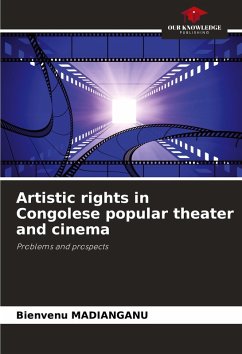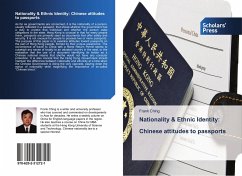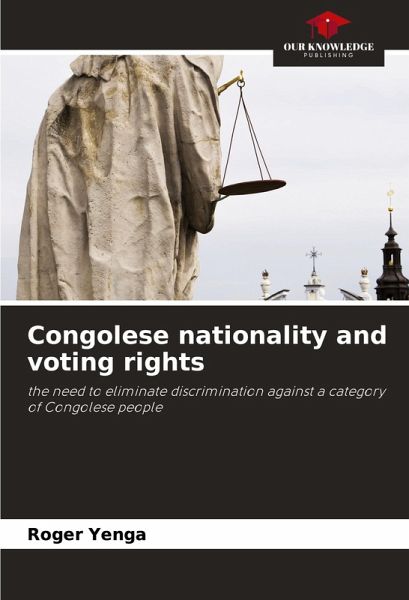
Congolese nationality and voting rights
the need to eliminate discrimination against a category of Congolese people
Versandkostenfrei!
Versandfertig in 6-10 Tagen
34,99 €
inkl. MwSt.

PAYBACK Punkte
17 °P sammeln!
In a democracy, it is the primary sovereign who freely chooses his or her leaders through political elections. The exercise of the right to vote is therefore intimately linked to the democratic process and belongs, in principle, to all citizens who meet all the conditions required by law. It is for this reason that the exercise of the right to vote is said to be universal and equal, since no discrimination is acceptable. However, in the Republic of Congo, the current situation, which dates back to the adoption of the original electoral law in 2001, is unfortunately characterized by the inexpli...
In a democracy, it is the primary sovereign who freely chooses his or her leaders through political elections. The exercise of the right to vote is therefore intimately linked to the democratic process and belongs, in principle, to all citizens who meet all the conditions required by law. It is for this reason that the exercise of the right to vote is said to be universal and equal, since no discrimination is acceptable. However, in the Republic of Congo, the current situation, which dates back to the adoption of the original electoral law in 2001, is unfortunately characterized by the inexplicable exclusion of certain Congolese citizens from the exercise of this fundamental and important democratic right. This publication demonstrates this and proposes some concrete avenues leading to the necessary reform of certain provisions of the electoral law.





